True North: Images of Urban Macao
Skeptics may mock an official plan to promote tourism in northern Macao, but while the area isn’t pretty, it is – indisputably – the city’s heart.
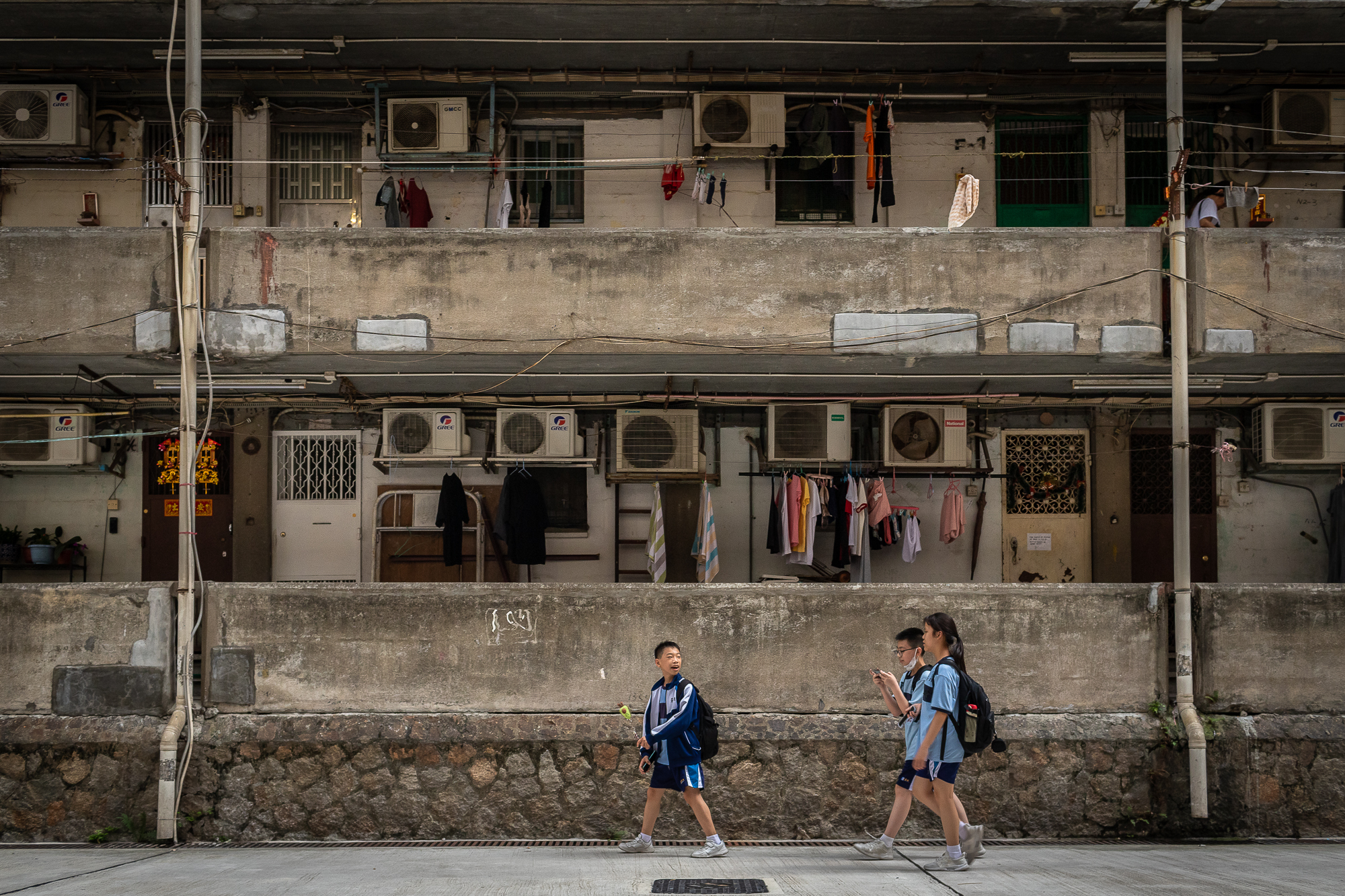
If the government has its way, the streets of northern Macao will soon be welcoming a kind of visitor rarely seen in the district: tourists.
At present, the closest most visitors come to northern Macao are the checkpoints at Qingmao or the Border Gate. They clear immigration, then hurry through the suburb, glimpsing it through a taxi window on the way to the downtown part of the peninsula, or to Cotai.
The authorities would like to change that. Encouraging visitors to explore less well-known areas ensures that tourist dollars are spent more evenly around the city. It also relieves overcrowding in the tourist quarters.
Skeptics will say that there is “nothing” to see in northern Macao. That isn’t fair. The area is home to the large and leafy Dr Sun Yat Sen Municipal Park – built on the site of a former landfill in a minor triumph of urban regeneration. There’s also a 13th-century temple, and a museum dedicated to the hugely influential, Macao-born composer Xian Xinghai (1905-1940) – one of the first Chinese composers to take inspiration from the Western classical canon.
But as can be seen from Eduardo Leal’s photographs – taken over the summer of 2023 – northern Macao’s chief attraction is its gritty urban ambience. Walking through its densely built-up streets, or standing in the shadows of its looming tenements, one can imagine what old Macao must have been like – not the historic Macao of pink Portuguese mansions and elegant colonnaded streets, but the old, spit-and-sawdust trading town of back alleys, sleeping dogs and tough, resourceful people.
Such communities were once found all over Pearl River Delta, but most – including the infamous Kowloon Walled City – have made way for urban renewal projects. That makes northern Macao rather special. True, it’s not for everyone. But if you’re even a semi-adventurous urban explorer, you owe it to yourself to take a look. When you do, you might agree that the government is on to something.
The northern part of the peninsula isn’t an obvious tourist destination, but it is the real McCoy – or rather, the real Macao.
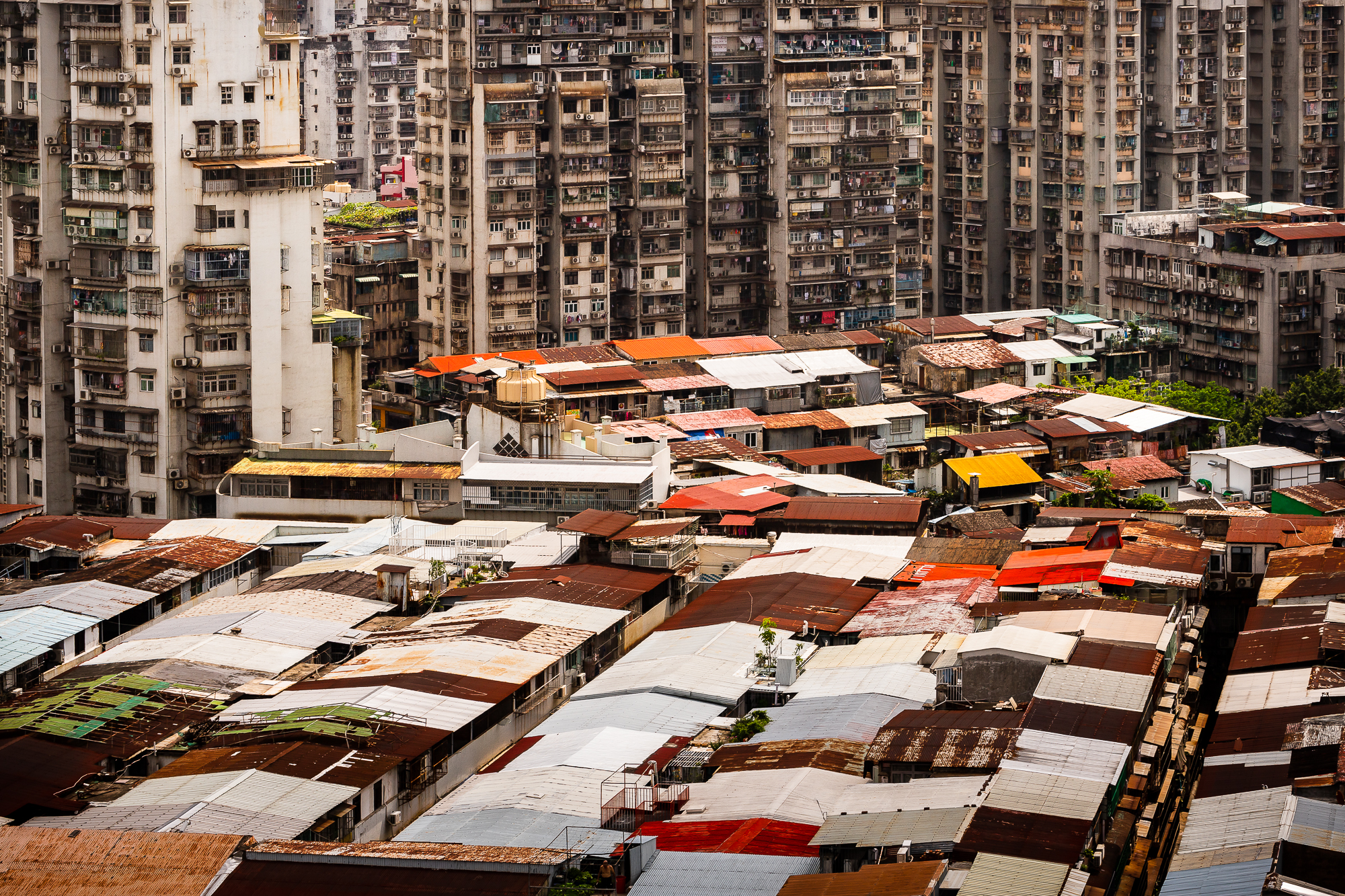
The corrugated iron roofs of tenement structures are arrayed like a giant patchwork quilt in Areia Preta
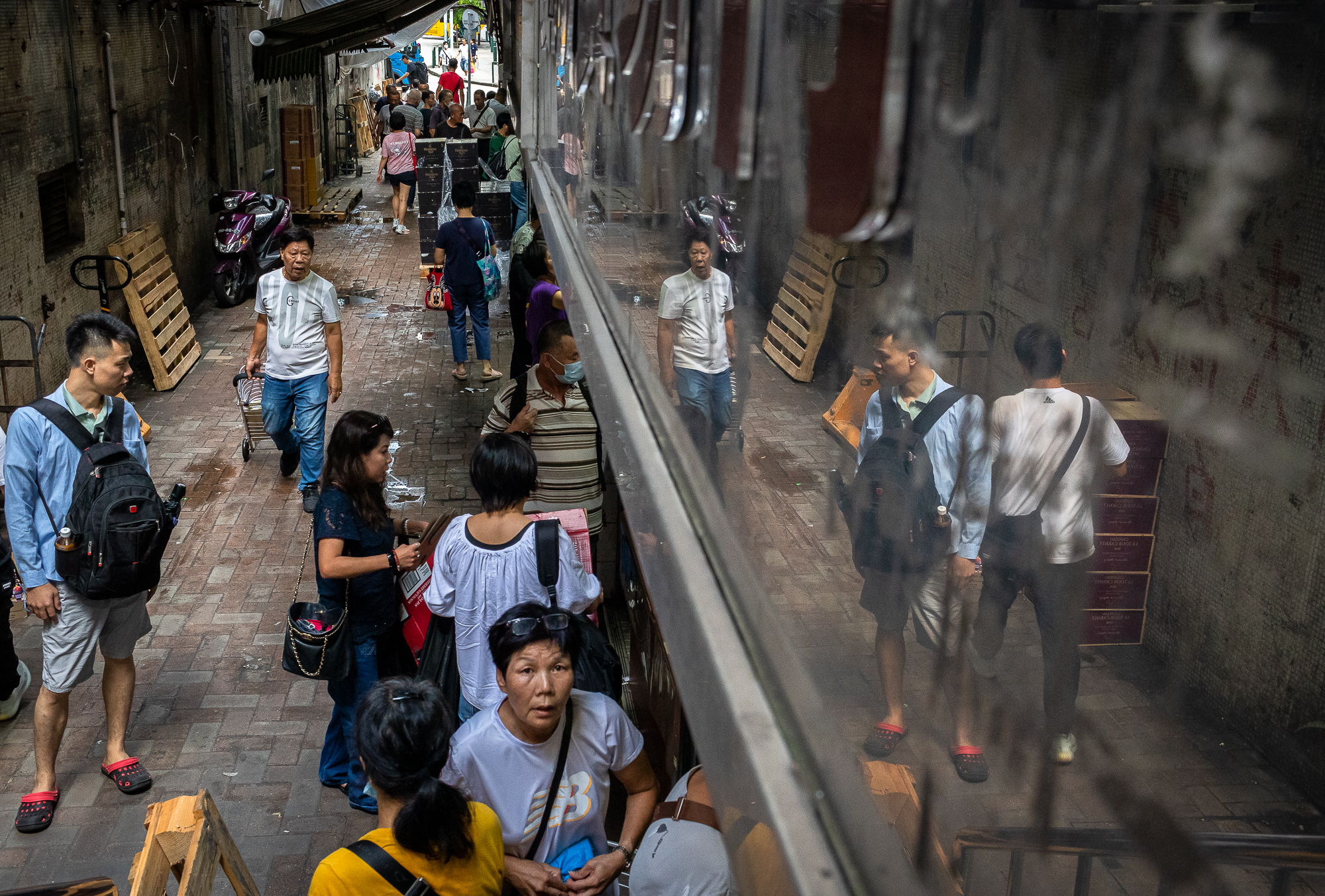
Shoppers buy drinks in an alley next to the Border Gate
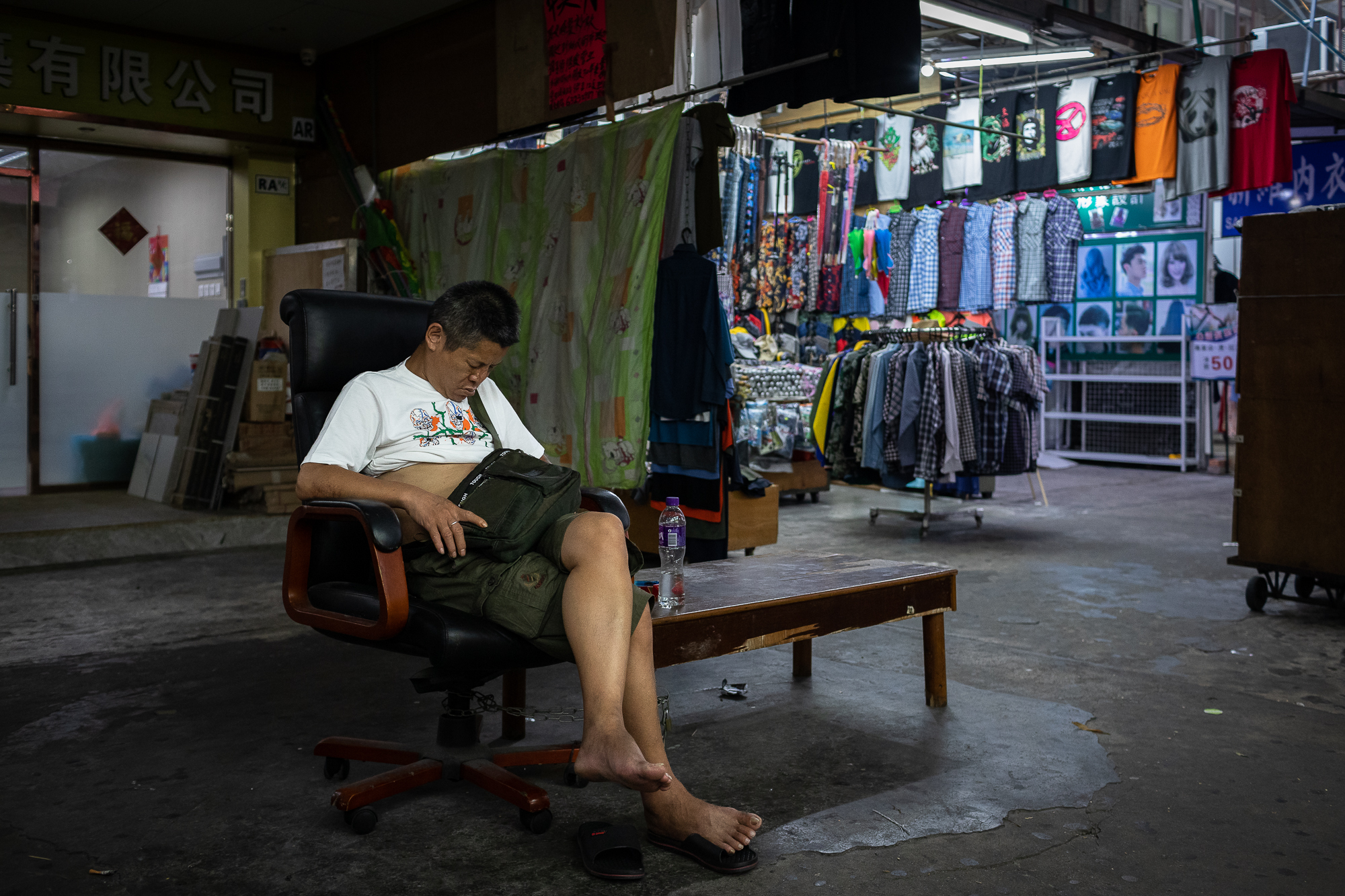
A discarded office chair makes the perfect napping spot for this man at the market in the Iao Hon neighborhood of northern Macao
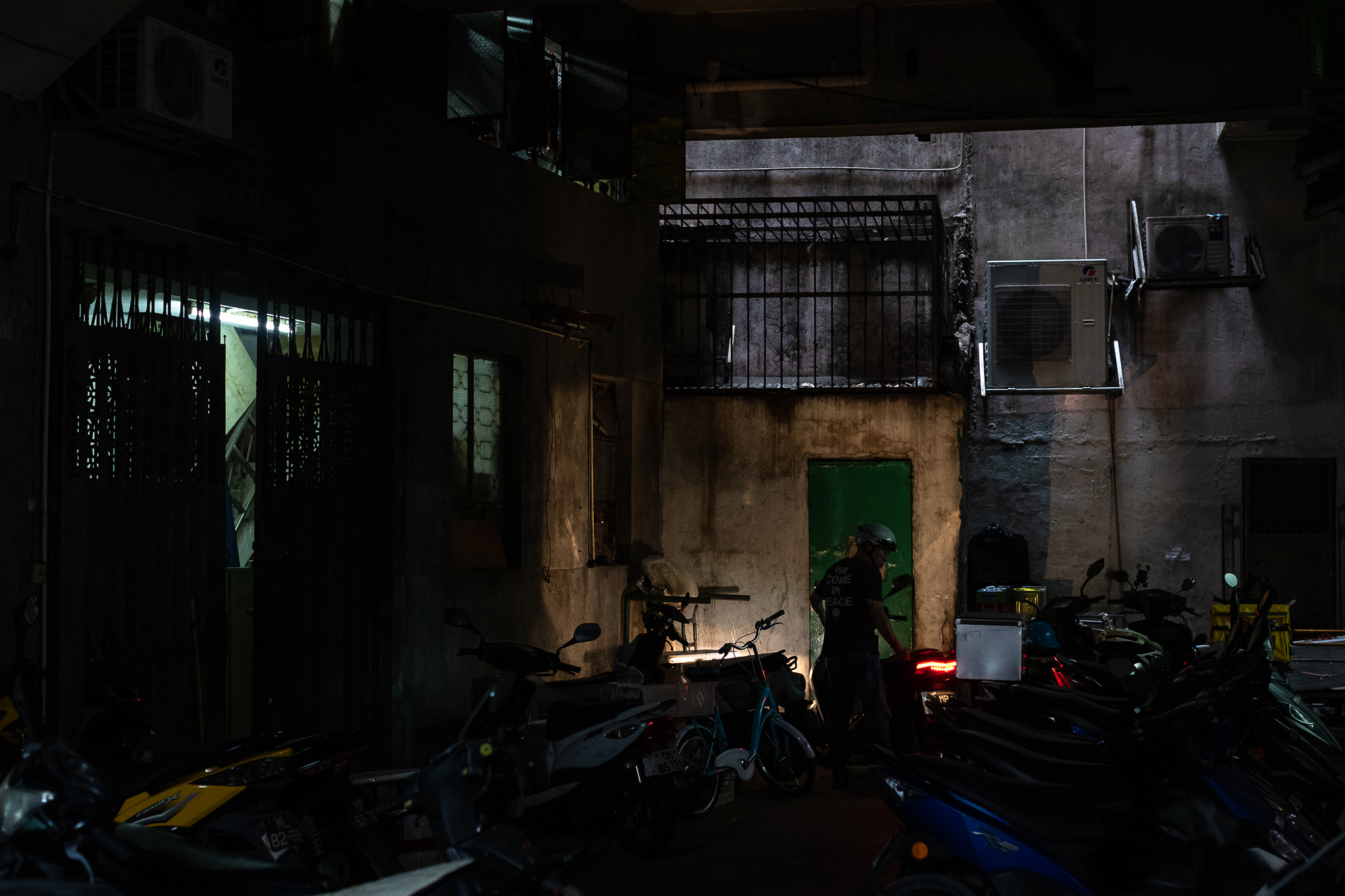
A rider readies his motorbike in an alley as daylight struggles to penetrate through the densely packed buildings
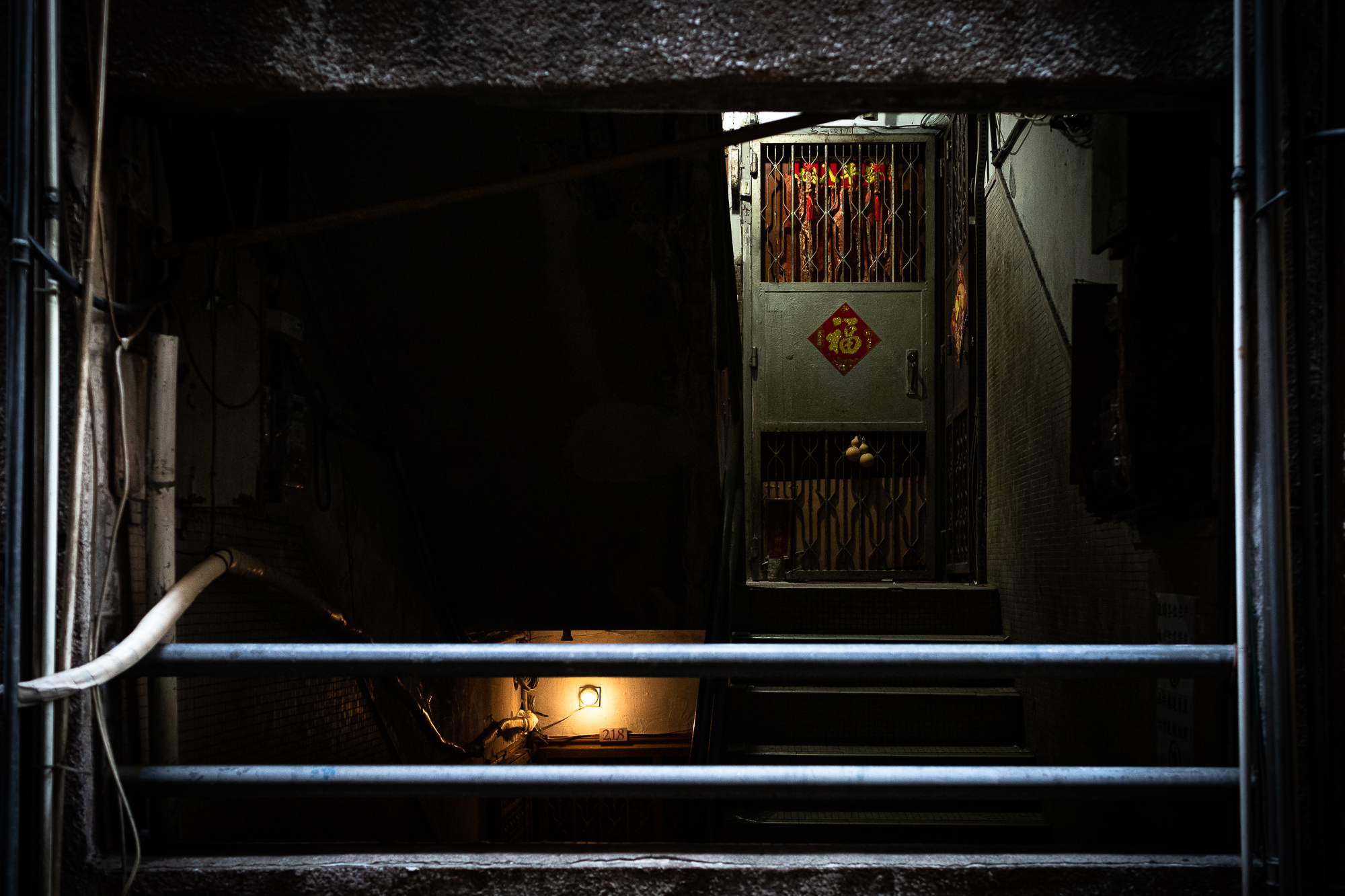
The door of an apartment at the Iao Hon tenement in northern Macao. Built during the 1960s, the apartment block has, according to 2021 data, 12,014 residents. That’s an average of more than five people per flat, compared to the city-wide average of three
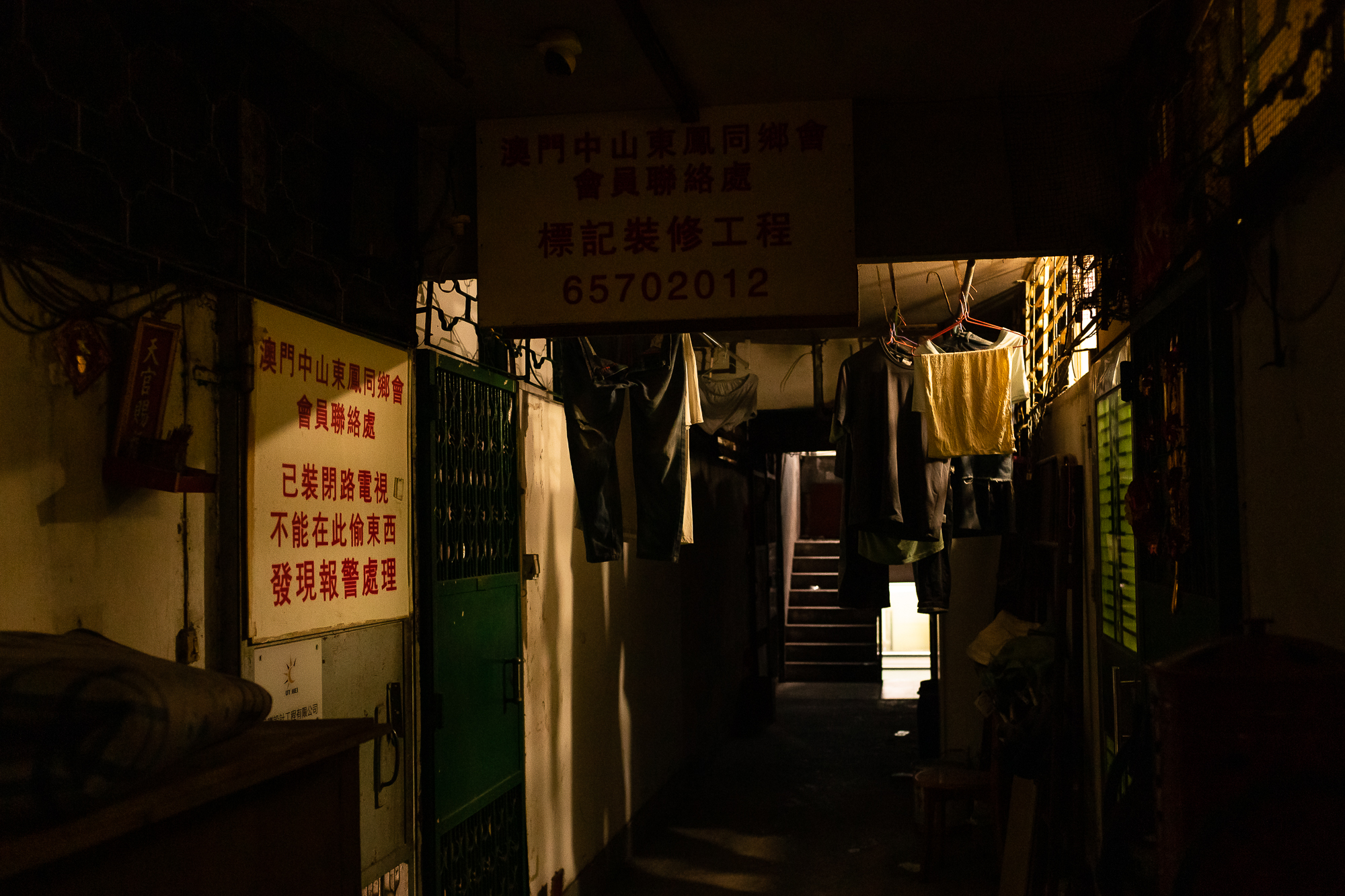
Sunlight filters through the windows of a corridor at the Iao Hon tenement building
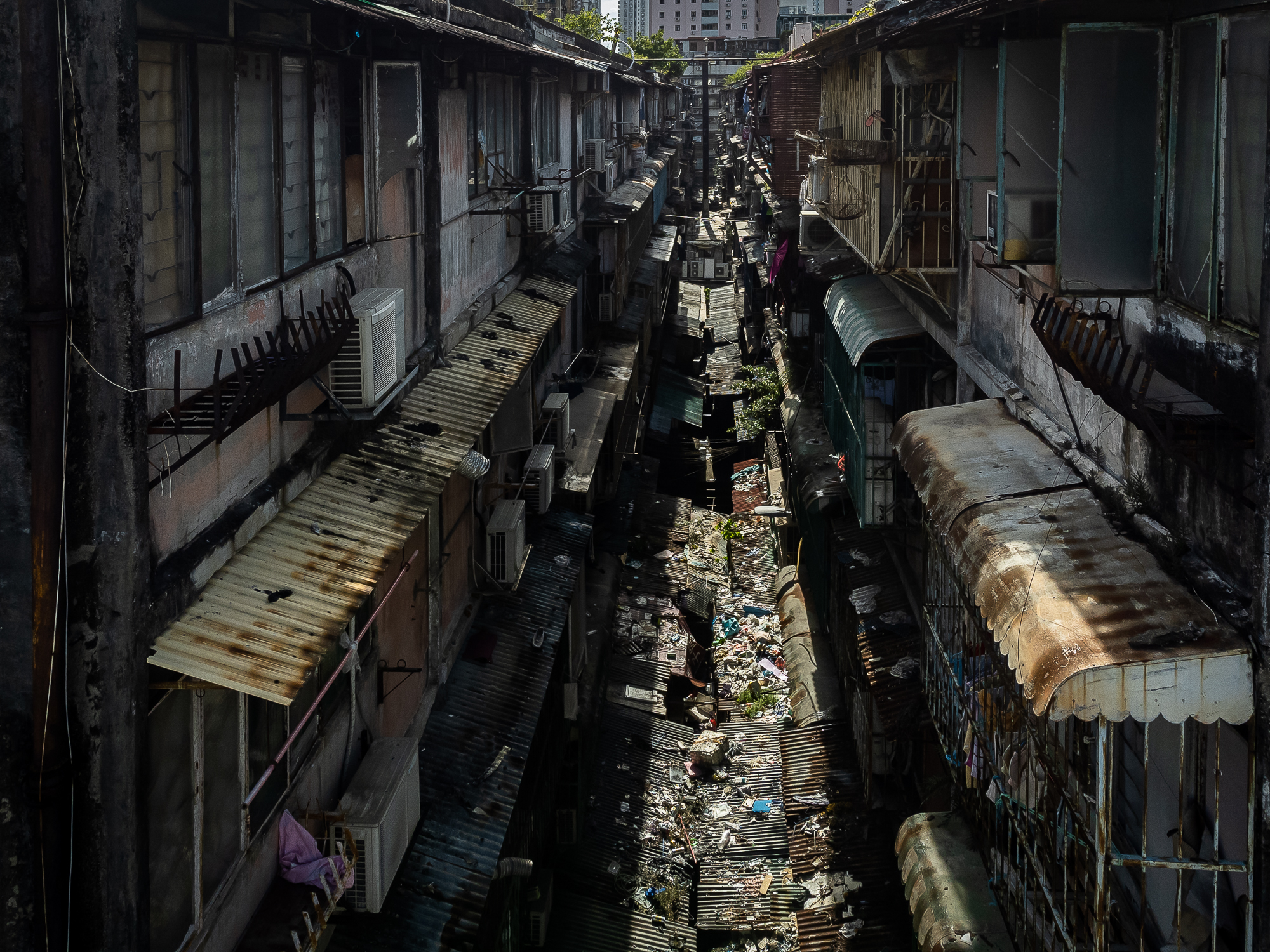
Rubbish piles up on the awnings of an alley at the Iao Hon apartment block
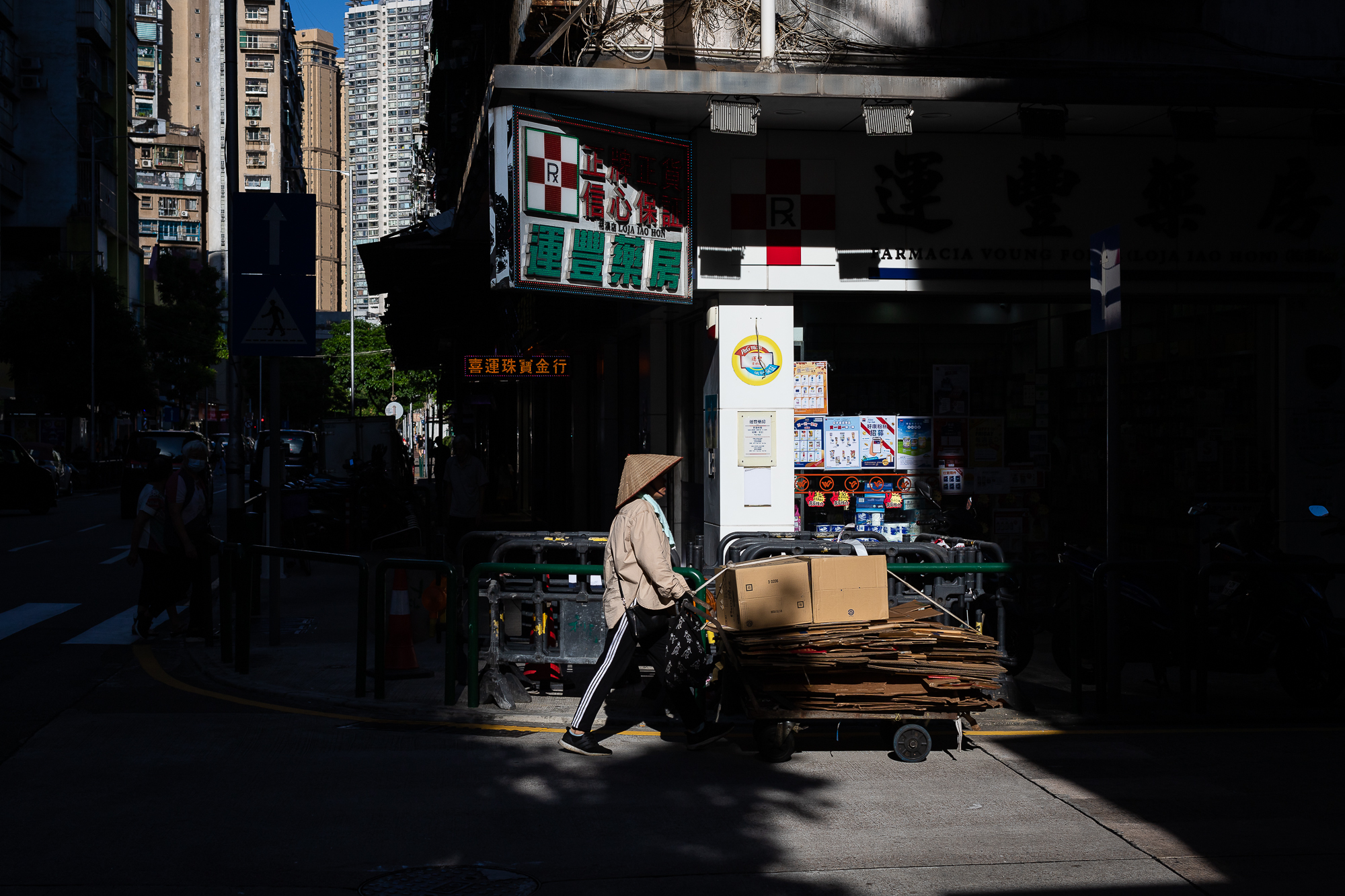
A cardboard recycler pushes their barrow through the streets of northern Macao
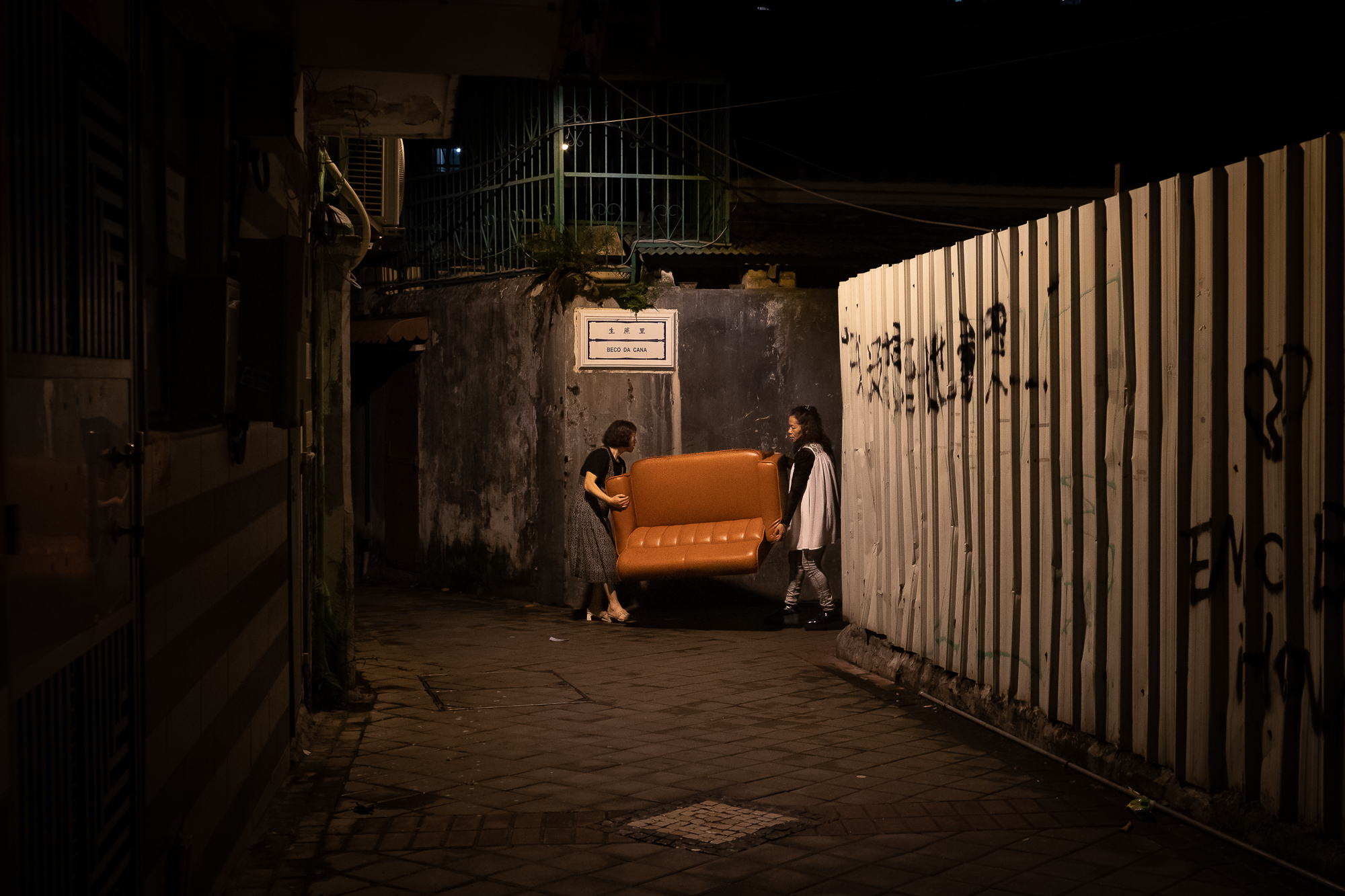
Moving house or a lucky find? Two residents carry a sofa on the Beco da Cana
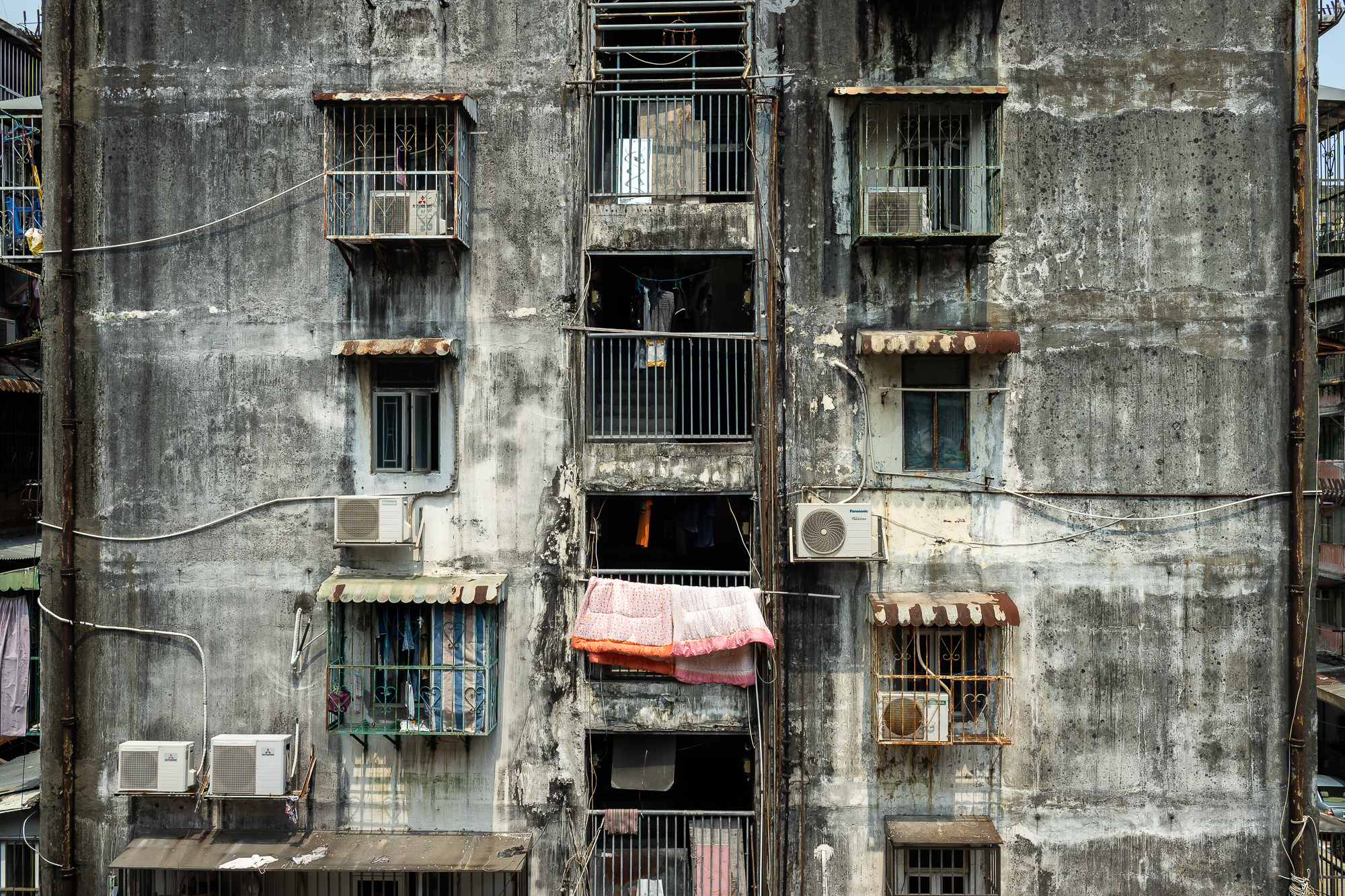
Details of the façade at the Iao Hon tenement building in northern Macao
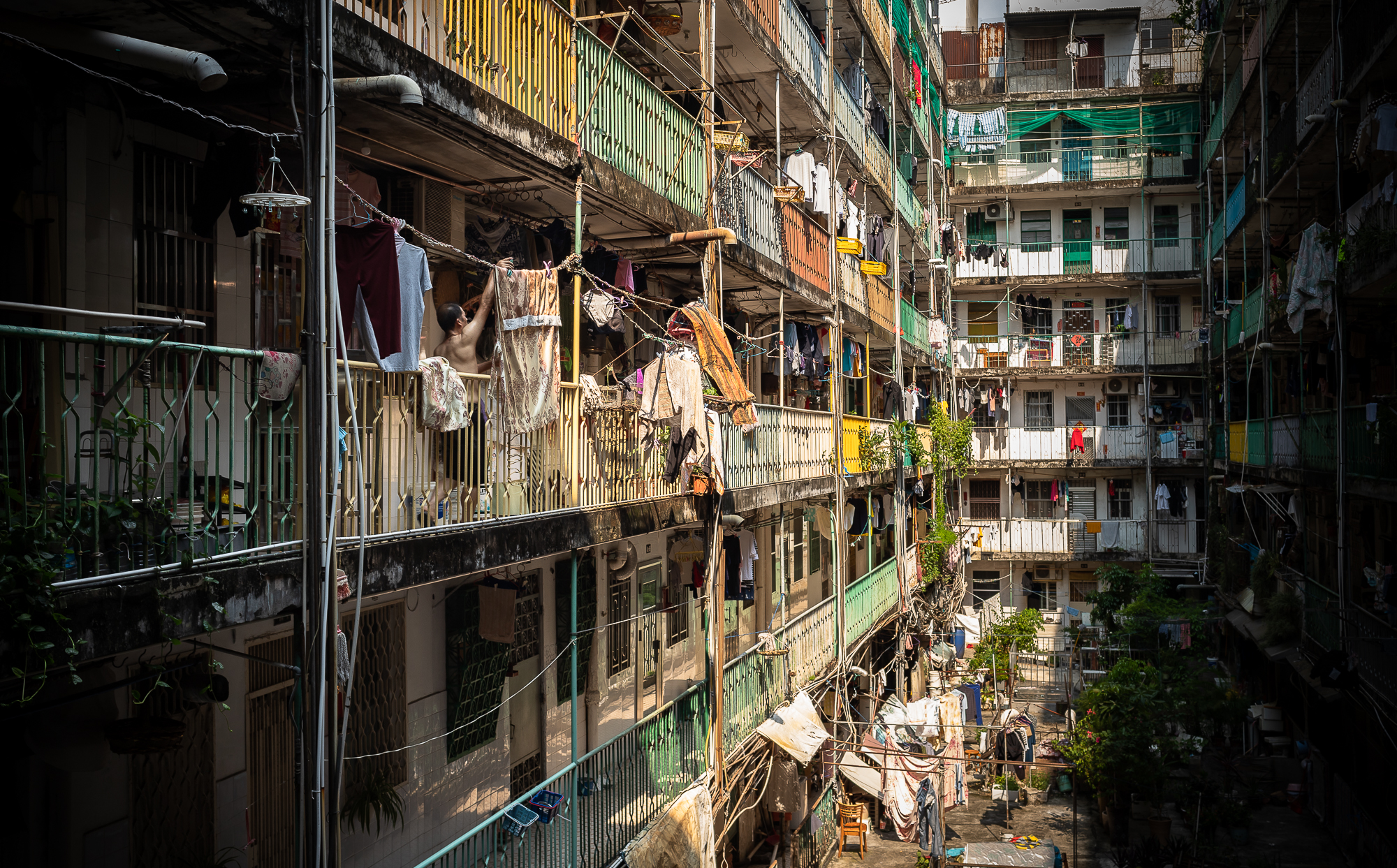
A resident hangs up his laundry at a block of flats in Areia Preta, where many migrant workers live